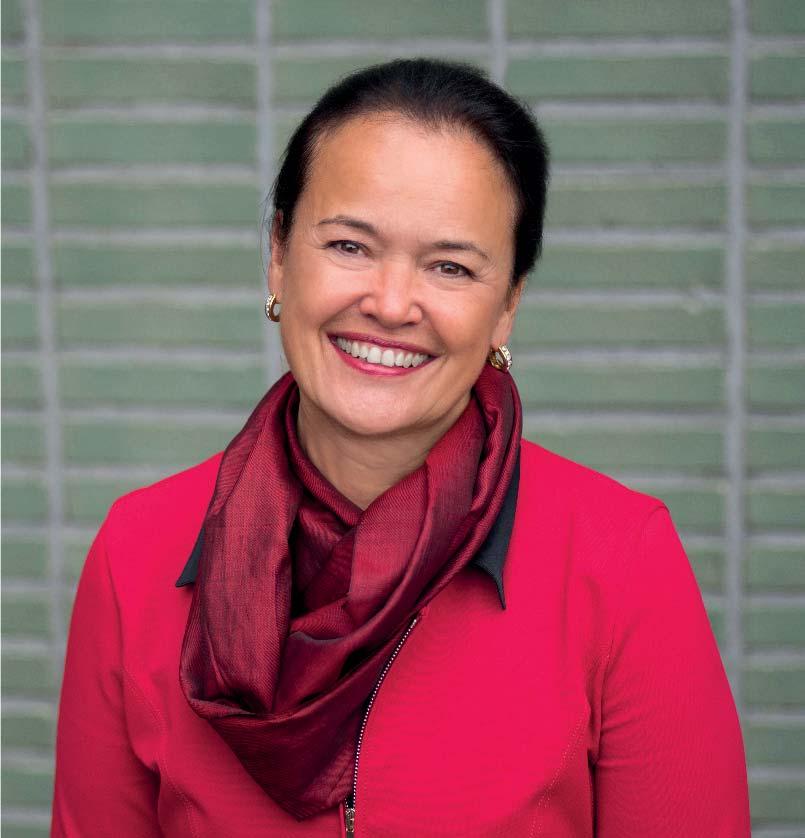
3 minute read
Breast International Group (BIG): the power of international collaboration in cancer research
by 5rXobdlLrFp
2019 marked the 20 th anniversary of the Breast International Group (BIG), the largest collaborative network in the world devoted to accelerating progress in the treatment of breast cancer.
Prof. Martine Piccart, Research Director of the Jules Bordet Institute
Advertisement
© Jules Bordet Institute
With its 57 research groups covering five continents, BIG is in a unique position to avoid duplication of efforts and to streamline research focused on subpopulations that represent less than 20 percent of all breast cancers.
What progress have we made during these past two decades of international collaboration? BIG created a new partnership model with pharmaceutical companies for the efficient and rapid conduct of registration trials that involve targeted drugs for breast cancer subpopulations : while the clinical trial database and biological samples collected from patients reside with academia, there is a very close collaboration with pharmaceutical partners at all levels, starting with the protocol writing, the statistical design, the resolution of any logistical and safety problems, and the interpretation of the results. Academic investigators have a greater sense of ownership of the study and show a long-term commitment to generating relevant scientific data beyond the completion of the trial.
Using this model, BIG has contributed to the successful registration of two antiHER2 monoclonal antibodies : trastuzumab (thanks to the HERA trial) and pertuzumab (thanks to the APHINITY trial), which offer a greater than 90 percent probability of freedom from relapse to women with early HER2-positive breast cancer when used in addition to chemotherapy. This is a giant step forward in treating a breast cancer subtype that had a dismal prognosis 20 years ago. But BIG is most proud of its “heroic” academic trials, those that address critical patient needs outside the scope of potential commercial gains and therefore represent major challenges to secure the needed financial support.
Let us consider two examples. MINDACT recruited 6.600 women with early hormone receptor positive breast cancer across nine European countries in less than four years and demonstrated the clinical utility of the 70-gene signature Mammaprint™ to identify women unlikely to benefit from the addition of chemotherapy to endocrine therapy: in concrete terms, women who are considered to be at high risk of relapse based on traditional clinical and pathological features (such as a large tumor or the presence of one positive axillary node) but whose tumors show a “low risk” profile according to the 70-gene signature, do not derive a favorable benefit-versus-harm ratio from chemotherapy and are best treated with endocrine therapy alone. This study received 7 million Euros in support through an EU 6 th Framework Programme grant, but required massive effort by the academic consortium partners to raise an additional 40 million Euros from various sources.
AURORA is a unique, ambitious, longitudinal research programme entirely dedicated to metastatic breast cancer (MBC), still an incurable clinical condition in 2019. The programme hopes to bring light to the darkness of this disease, as our current knowledge of its lethal molecular evolution is still very poor. The 800 participants already enrolled in AURORA (out of at least 1000 foreseen) undergo in-depth characterization of their primary breast tumors, one metastatic site and circulating tumor DNA present in plasma, using next-generation sequencing technology.
The programme also requires the prospective recording of the patients’ responses to sequential anticancer therapies, with plasma drawn each time the disease progresses. These samples are bio-banked for future analysis. Our hope is to characterise the molecular clones that drive disease progression, opening the door to develop future prevention strategies. AURORA would not have been possible without a generous 10 million US dollar grant from the Breast Cancer Research Foundation (BCRF), grants from other generous charities such as the Fondation Luxembourg as well as numerous individual donors, and still needs to raise about 15 million Euros to complete its ambitious goals.
In summary, BIG demonstrates the power of international collaboration in cancer research, but also the need to address the uphill struggle of academic researchers to fund much-needed research.










